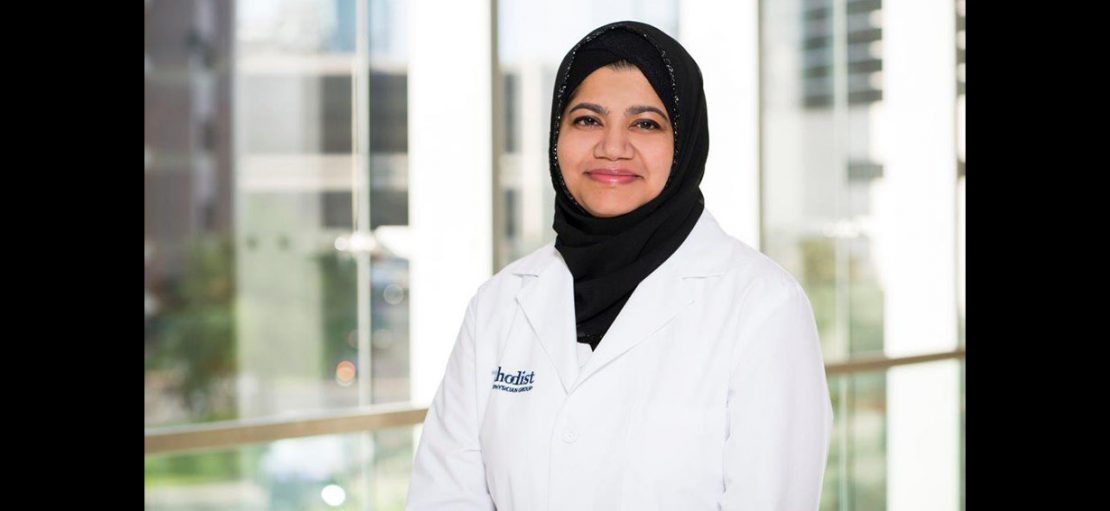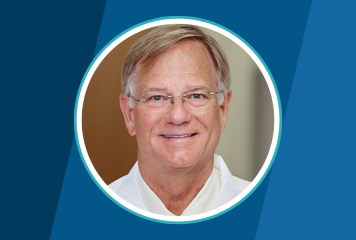Jawairia Shakil, MBBS, FACP, FACE, FEAA, Dipl. ABOM, is an Assistant Professor of Medicine and Program Director of the Endocrine Fellowship at Houston Methodist Hospital. She is a practicing endocrinologist with an interest in adrenal, gonadal and neuroendocrine disorders. She joined the ABIM Endocrinology, Diabetes & Metabolism Board in 2023.
Why did you decide to specialize in endocrinology and what do you like about it?
As a medical student, my initial interest was in cardiology. I progressed in my education and joined a residency program in West Texas where there was a large proportion of patients with diabetes and obesity. At the time, new medicines were being developed and approved and it became interesting. My mentor in residency was an endocrinologist and I learned a lot about endocrinology and its complex diagnoses. I started with diabetes and then moved to more complicated cases, looking into adrenal problems. I enjoyed the cerebral nature of endocrinology and pursued a fellowship to become an expert in the field.
What I like about endocrinology is that diseases involving endocrine system are multifaceted and affect all the organ systems. In its truest sense it is life-altering. When a physician takes the time to sit with a patient and go through the diagnosis and management, it is a life-changing path for that patient. You develop that interaction and that relationship with the patient. They trust you and follow your advice. I’m a big advocate of patient education and I love the patient education part of our field.
What is special about the particular areas of endocrinology that interest you? What are some common misperceptions or things most physicians don’t know about these areas?
When I was being trained in internal medicine, we always heard about adrenal diseases being rare but in practice we see that they are not that rare. We have a lot of patients with adrenal diseases that cause uncontrolled hypertension and diabetes. We don’t identify all these patients. The common misconception is that some of these diseases are rare, therefore are not considered as a differential. The way I see it is, if you’re not looking for it you won’t find it. These are challenging diagnoses to make. That makes endocrinology even more interesting.
What kind of issues in medicine are you most passionate about and why?
I’m passionate about patient education. Patients need knowledge and insights to advocate for themselves. These are their tools to be able to self-manage chronic illnesses. Often, a physician does not have enough time or capacity to educate the patient adequately and treat them as a partner. Patients need to have an equal stake in this. They can’t have that unless they are aware of the importance of their role. They need to know what’s going on. If they don’t understand, they won’t be able to get the maximum benefit of treatment.
The other thing is access. As a diabetes specialist, I’d say the biggest problem we’re facing is lack of equitable access to all the wonderful advances we have made in the last decade in developing new therapeutics and devices. We have wonderful drugs, injectables and orals, and we can’t get them to our patients because they’re too expensive. One thing I hope to make an impact on if I can, is to improve access to these great drugs that improve diabetes and mortality.
Can you reflect on your experience as an international medical graduate now certified and practicing in the United States? What was positive or challenging about that transition? Would it be easier or harder to do it today?
I consider it my strength that I did my medical training in Pakistan. The medical system there is highly reliant on physician skills rather than ancillary tools such as imaging, testing and other facilities that are not as readily available as they are here. Getting trained there made me a more astute and detail-oriented physician. When I first came here it was a cultural change. I came from Karachi—a big metropolitan city—to Odessa, a small Texas town. Only a handful of people even knew where my country is. It was a challenge as a new resident to try to make a place for myself and prove my worth as a physician and a representative of people who get trained outside of the U.S.
However, it is a very collegial environment to work in and I believe the system here is more conducive to structured growth and objective, data-driven medicine. As a physician, your career path is defined by your interest and not a hierarchy. Your credentials are impactful and reflect the high-quality training you receive here. That’s why I am here and that’s why my career progressed in my early thirties. If we look at today, it has become harder to come to the U.S. for foreign medical graduates, particularly after the pandemic. I hope that high-quality, ambitious people continue to come to our medical system and be a part of all the advancement we have achieved here.
What are you most proud of in your career to date?
I am very proud of being able to maintain the same level of passion I had as a pre-med student after two decades of being in medicine. I am proud of all the feedback I receive from patients, particularly when I was working in underserved communities, and of the relationships I’ve developed with them. I cherish and strive for a great patient-physician relationship because that is the core of patient care.
I am the program director of the endocrine fellowship and am proud of being able to help advance the careers of aspiring endocrinologists. And I’m able to do all of that along with managing my three kids and a husband, so I’m proud of what I have achieved and aspire to achieve.
What advice would you give to young physicians just beginning their careers?
It’s clichéd, but my advice is to never lose your passion. It’s hard to keep your passion growing, especially with the changes happening in our field and the current environment, a lot that wasn’t happening 10 or 15 years ago. It’s very hard to keep the passion going, but never let that passion go. That will make or break you in the long run. This job is not about anything else, it demands that you are sincere to yourself. When you entered medical school, you should have asked yourself, am I really passionate about it? No amount of income or titles or credentials will keep you going if you don’t have a passion for medicine.
Why did you want to join the Endocrinology, Diabetes & Metabolism Board? What are you looking forward to the most?
I am looking forward to having a voice at the table as an international medical graduate and a person of color. Also, there’s a lot of misrepresentation of ABIM in general in the physician population. I want to be able to show other physicians that I am one of them and I am also part of ABIM. My goal is to show that ABIM represents us and is working for us.
Why is board certification valuable to you?
I think it is an objective measure of competence. On top of that, you can build on it. Like I mentioned, in the U.S., you can move upwards based on your competence. Having an authenticated method of testing your baseline mental knowledge or how you deal with problems in clinical practice in something that can be scored is important for me. Board certification is a nationwide validity of a standard physicians must uphold.
What do you most want diplomates to know about you?
I actively work towards compassion and empathy. If I meet someone, I want them to remember me as a kind and compassionate person. I am a good listener and try to contribute something positive to situations. I believe in the good in people. I think we all should. Believing in the inherent goodness in people can also foster understanding, empathy and forgiveness, allowing for more harmonious and compassionate interactions. By approaching others with kindness and empathy, you can create a ripple effect that inspires and encourages others to do the same. That’s my life philosophy that I apply in my practice as well.



